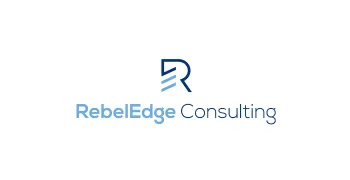
Our Articles
Explore our latest insights and discoveries

The Vendor Management Maze: A Tale of Organizational Chaos
The Dream Job Turns into a Nightmare
Scene: First Week on the Job
Alex's eyes sparkled with excitement as she walked into the sleek office building. Today was her first day as the new Head of Vendor Management for XYZ Corp. This was her dream job - building a comprehensive vendor management program from scratch, streamlining processes, optimizing costs, and mitigating risks. It was everything she needed to supercharge her resume, not to mention the sense of purpose that came with ensuring the company's vendor relationships were efficient and beneficial.
Little did Alex know, she was about to embark on a journey through the labyrinth of corporate dysfunction.
Day 1: The Hunt for Information Begins
Alex's first task seemed simple enough: gather all existing vendor contracts to start building her database. She approached her colleague, Tom, from the procurement team.
"Hey Tom, I'm looking for our vendor contracts. Where can I find those?"
Tom's brow furrowed. "Vendor contracts? Well, those are spread out across various departments. You might want to check with the IT team for software vendors, facilities for building maintenance, and so on."
Day 2: The IT Department Runaround
In the IT office, Alex met with Jessica, a senior IT manager.
"Contracts? Oh, each team lead manages their own software subscriptions," Jessica explained. "You'll need to gather and review them individually."
Alex's optimism dimmed slightly. "I see. Is there a central contract management system I can access?"
Jessica looked confused. "Management system? We usually keep copies in our shared drive or sometimes in our emails. You might want to check with the finance team for payment records."
Day 3: The Silo Discovery
As Alex hunted down contracts from various departments, she stumbled upon a startling revelation. There were already people in different teams managing vendor relationships, each working in isolation.
"This is great!" Alex thought. "We can consolidate these efforts under my new program."
Day 4: The Proposal and Shutdown
Excited by her discovery, Alex formulated a plan. She approached her boss, Mike, with what she thought was a brilliant idea.
"Mike, I've found several teams already managing vendor relationships. If we centralize this under my department, we could streamline the process, potentially save costs, and better manage risks."
Mike's face hardened. "Alex, I appreciate your enthusiasm, but we can't just change how each department manages their vendors. It would cause too much friction. Let's stick to building your program for new vendors, okay?"
Alex left Mike's office, deflated. She had just encountered her first lesson in corporate politics - never challenge the existing organizational structure, no matter how illogical it might be.

The Real-World Implications
Alex's story, while fictional, mirrors the experiences of countless professionals in organizations around the world. It highlights several critical issues:
Information Silos: Vital data scattered across departments, making it nearly impossible to get a comprehensive view of vendor relationships.
Lack of Standardization: Each division operating with its own rules and processes for vendor management, leading to inconsistencies and potential risks.
Redundancy: Multiple teams performing similar vendor management functions without coordination, wasting resources and potentially creating conflicts.
Resistance to Change: Entrenched structures and political considerations trumping logical improvements.
Missed Opportunities: Failure to leverage existing resources and knowledge within the organization, potentially missing out on cost savings and risk mitigation strategies.
Breaking Free from Organizational Chaos
At RebelEdge Consulting, we've seen this scenario play out time and time again. It's a symptom of outdated organizational structures that no longer serve the dynamic needs of modern businesses. But it doesn't have to be this way.
Imagine if Alex had joined a company where:
A centralized database housed all vendor contracts and information, accessible to all relevant parties.
Cross-functional teams collaborated seamlessly, breaking down silos and fostering innovation in vendor management.
Leadership encouraged and rewarded ideas for structural improvements, regardless of where they originated.
Processes were designed for agility and efficiency, not to maintain the status quo.
This isn't a pipe dream. It's the reality for organizations that have embraced a new paradigm of organizational design.
The RebelEdge Approach: Transforming Chaos into Clarity
At RebelEdge Consulting, we believe in challenging the status quo. Our approach to organizational transformation includes:
Holistic Assessment: We start by mapping out the entire organizational ecosystem, identifying silos, redundancies, and inefficiencies in vendor management and beyond.
Strategic Alignment: We ensure that your organizational structure supports your strategic goals, not hinders them.
Human-Centric Design: We create structures that empower employees, fostering engagement and innovation in vendor relationships and other key areas.
Agile Implementation: We help you implement changes swiftly, with built-in feedback loops for continuous improvement.
Cultural Transformation: We work with you to build a culture that embraces change and values efficiency over tradition.
Rewrite Your Organizational Story
If Alex's story resonates with you, it's time to ask yourself:
How much time and talent is your organization wasting due to structural inefficiencies in vendor management and other areas?
Are your best ideas for improvement getting lost in a maze of political considerations?
Is your current structure helping or hindering your ability to manage vendor relationships effectively and meet other critical business objectives?
Don't let your company's story be one of missed opportunities and frustrated talent. It's time to rewrite the narrative.
At RebelEdge Consulting, we're not just consultants; we're partners in your transformation journey. We're ready to help you create an organizational structure that empowers your people, streamlines your processes, and drives your business forward.
Are you ready to challenge the status quo? Contact RebelEdge Consulting today, and let's start writing a new chapter for your organization - one of clarity, efficiency, and success.
Remember, in the world of business, the edge doesn't go to the comfortable – it goes to the bold. Are you ready to find your rebel edge? Visit us at www.rebeledgeconsulting.com to book your discovery call today.


LinkedIn
Youtube